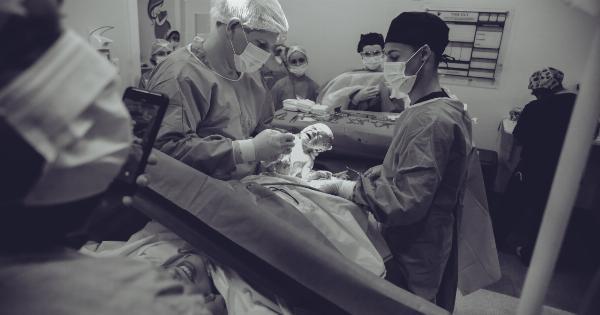Abdominal surgery is a serious procedure that should be taken with utmost care. When it is done during the postpartum period, there are special considerations to take into account.
Recovering from abdominal surgery while managing a newborn or other young children can be challenging. However, with proper planning and support, postpartum recovery after an abdominal surgery can go smoothly. In this guide, we will cover everything you need to know to prepare for and recover from abdominal surgery during the postpartum period.
What is Abdominal Surgery?
Abdominal surgery is a procedure that involves opening up the abdomen to access organs or tissues inside.
This can be done for a variety of reasons, including to remove a tumor, repair damage from an injury or illness, or to address issues related to pregnancy or childbirth. Abdominal surgery can be major or minor, depending on the extent of the procedure.
Reasons for Abdominal Surgery Postpartum
The most common reason for abdominal surgery during the postpartum period is a cesarean section (C-section). A C-section is a surgical procedure in which a baby is delivered through an incision in the mother’s abdomen and uterus.
Other reasons for abdominal surgery during the postpartum period may include:.
- Hysterectomy (surgical removal of the uterus)
- Fibroid removal
- Ovarian cyst removal
- Gallbladder removal
Preparing for Abdominal Surgery During Postpartum
Preparing for abdominal surgery during the postpartum period involves thorough planning and communication with your healthcare team. Here are some steps you can take to prepare for your surgery:.
- Discuss the risks and benefits of surgery with your healthcare provider
- Discuss your pain management plan with your healthcare provider
- Arrange for someone to help you care for your newborn and household duties post-surgery
- Have a follow-up plan in place with your healthcare provider
Recovering from Abdominal Surgery During Postpartum
Recovery from abdominal surgery during the postpartum period can take longer than if the surgery was performed during a non-pregnant state. It is important to take things slow and follow your healthcare provider’s instructions for recovery.
Here are some tips for a smoother post-surgery recovery:.
- Rest as much as possible
- Avoid lifting heavy objects, including your newborn
- Breastfeed in a comfortable position, such as lying down or with a breastfeeding pillow
- Take your pain medication as prescribed
- Eat a healthy diet
- Avoid anything that may strain your incision site, such as constipation caused by opioid pain medications, straining during bowel movements or coughing
- Gradually increase your activity level as recommended by your healthcare provider
When to Call Your Healthcare Provider
It is important to stay in close communication with your healthcare provider during your recovery. Call your healthcare provider if you experience any of the following symptoms:.
- Fever
- Excess bleeding from your incision site or vagina
- New or worsening pain at your incision site
- Redness or swelling at your incision
- Signs of infection, such as foul-smelling vaginal discharge or pus at your incision site
- Difficulty breathing, chest pain or discomfort
- Prolonged constipation or bowel problems
- Severe nausea or vomiting
Closing Thoughts
Recovering from abdominal surgery during the postpartum period can be challenging, but it is important to take the time to rest and recover properly. With the right support and care, you can heal and resume normal activities.
Remember to follow your healthcare provider’s instructions for a successful recovery.






























